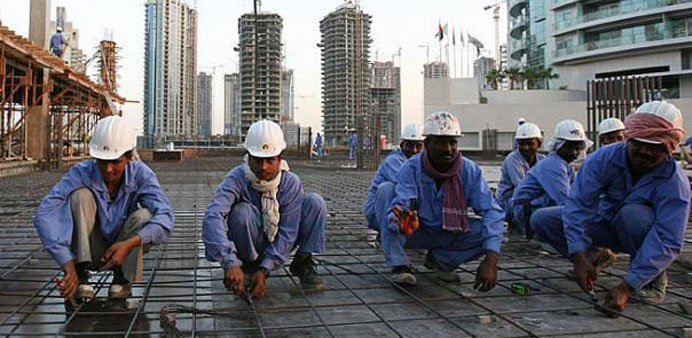Kerala has abandoned plans to charter flights from Saudi Arabia to bring back overstaying workers.
The state’s minister for non-resident affairs, K C Joseph, said the authorities were forced to abandon the plan to operate special flights from Riyadh, Jeddah and Dammam due to inadequate demand.
“We need at least 150 passengers to charter a flight. But the applications we received were far below that number,” the minister, who is currently in Sidney, Australia, said in a statement issued here yesterday.
The government decided to operate chartered flights from November 20 to airlift stranded expatriates after the deadline for legalising the job and residence status under the Nitaqat (naturalisation) law ended on November 3.
Separate advisory committees of expatriate volunteers were formed in the three Saudi cities to collect applications from those who registered at the Indian diplomatic missions before the deadline expired.
“So far, we have received only 110 applications from these three centres. So we decided to provide all of them with free tickets on the regular commercial flights,” the minister said. “This decision was taken after discussions with the chief minister (Oommen Chandy).”
Applications for free tickets should come through the advisory panels before December 1.
So far, 14,956 expatriates who lost their jobs since April 2 have registered online and at the helpdesks of his department of Nonresident Keralites’ Affairs (Norka) at the state’s three international airports.
Majority of the registrations (8,929) were done at the Kozhikode airport while 1,799 people opted for online registration. The Thiruvananthapuram International Airport here received 3,097 returnees.
Meanwhile, Faiz Ahmad Kidwai, consul-general of India in Jeddah, said the cases of those who failed to utilise the amnesty were being taken up with the Saudi authorities and they could be solved in due course.
“We have collated such cases category-wise and sent them to various Saudi government offices as well as handed them a letter and travel documents for facilitation of the process at a later date,” The Hindu newspaper quoted him as saying.
“Thus, I would like to stress that even those cases where we have not been able to complete the process are essentially work-in-progress and we hope to solve them in due course.”
He said a surprisingly small number of Kerala-based individuals sought exit as many Keralites have benefited from the grace period by getting their residency status corrected. Even those who have left the country during the grace period would have the option of coming back for jobs.
India was one of the first countries whose diplomatic missions in the kingdom brought out detailed guidelines for expatriates, disseminating through various channels to reach out to the last individual in the country.
“It is one of the primary reasons why Indian missions in the country were not only ahead of their counterparts in assisting Indians but also completed almost all their work in time,” he said. “We used our available resources, including community members and Indian International Schools to disseminate information and help immigrants with paper work and legalisation process during the grace period.”

